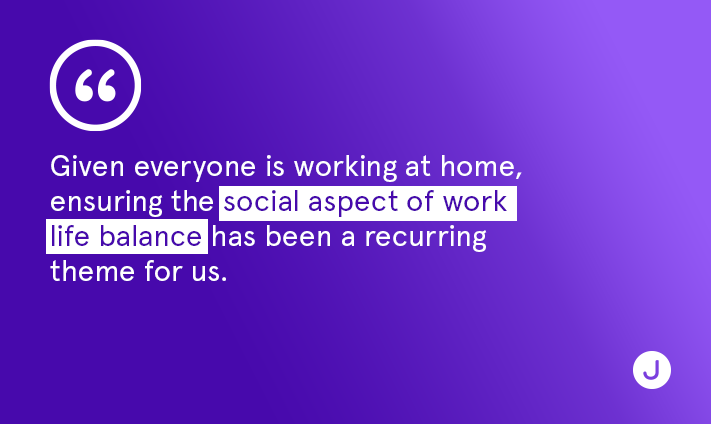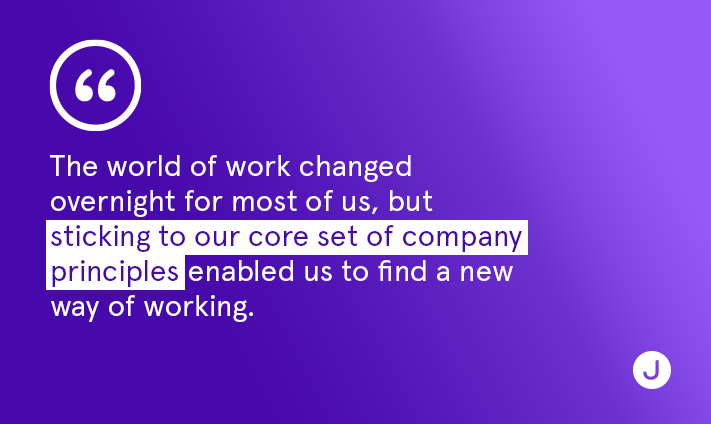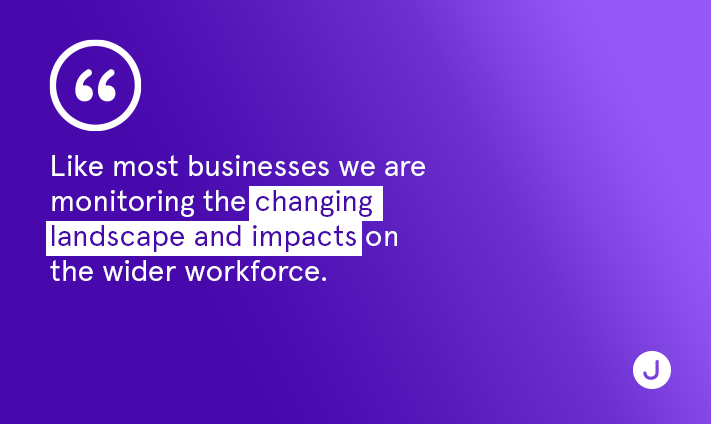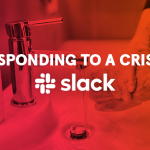This week we’re chatting to DeVono Cresa about how they’ve been coping with the outbreak of COVID-19.
It has been very uplifting seeing companies face the COVID – 19 challenges head-on with humanity, creativity and kindness. When things are going well, it is easy for a leader to do their job, however, during these tough times, it becomes a lot more challenging.
As we’ve mentioned before, companies will be remembered for their response to this global pandemic.
And so, we decided to chat to some well known businesses, and see what they’ve been doing to help their staff during this period.
This week, we’re chatting to DeVono Cresa, the London and UK office of Cresa, the largest firm of tenant-only real estate advisors in the world. They have over 80 offices globally which enables them to deliver a full range of critical client services to corporate occupiers on a global platform.
We spoke with Ruth Lynch, who is Head of People and Premises at DeVono Cresa.

1. How is your company coping working remotely? Have you put in place anything to keep your culture going, etc?
Roll-out of remote-working began as part of a wider workforce agility programme ahead of the enforced national lockdown. The closure of the office gave this exercise a little more urgency. As a result of wholesale deployment of cloud-based network and video conferencing tools such as Zoom and Microsoft Teams, the company has coped exceptionally well. Technology has also allowed us to maintain connectivity with both clients and providers, showcasing office space and design modelling were appropriate online. Tools that we have put in place have enabled us to continue with our regular ‘social’ catch-ups such as Friday breakfasts, our Friday afternoon drinks, and monthly company meetings, albeit remotely.
2. What initiatives have you implemented in DeVono Cresa because of coronavirus in order to maintain an engaged remote workforce? And do you think it will be beneficial to maintain any of these initiatives back in the office?
Maintaining staff engagement, and with that our unique company culture, has certainly required more creativity than is the case when we are all together. In order to do this, we have continued with a number of social activities, albeit online, that we would normally do in the office. This has given us all a chance to chat, converse, and learn more about our colleagues while they’re at home. We have made sure that no staff are left out or feel distant during this time. Given everyone is working at home, ensuring the social aspect of work life balance has been a recurring theme for us. We have done this through weekly company social events such as pub quizzes, yoga club, film and baking clubs, weekly team catch ups with line managers, and weekly individual check-ins with staff. We have made sure that our monthly company ‘Huddle’, now via Zoom, continued. We provide department updates to all employees, celebrate successes, and demonstrate recognition. In terms of maintaining new working practices when we return to the office, for us it will be more about transitioning back to doing all of these things that we used to do in person, but now do remotely, in person again – something we’re all looking forward to.
3. What are the 3 best tools that you would recommend when working remotely?
Zoom
Microsoft Teams
Office 365
These are all collaborative tools that enable us to work as a team. Whilst not a tool – a designated and organised work area is great to stay focused and engaged. This should be separate from your normal relaxation and unwind space.

4. Are you up-skilling your employees while they WFH? If so how?
In the short space of time that we have been away from the office, there have been a few occasions where employees have needed to gain new skills, generally related to technology adoption. This is not new to the circumstances that we find ourselves in. Employees have grasped the opportunity to learn new skills both for work and personal purposes.
5. How should someone do a remote job interview?
The same level of preparation required for a face-to-face interview should be given to a remote one. Be natural, make sure your phone or computer is connected to the network, dress smart, and act in the same manner as if you were in the room.
6. How have you been demonstrating your culture and values in DeVono Cresa during this time?
The world of work changed overnight for most of us, but sticking to our core set of company principles enabled us to find a new way of working. This was evident in the way in which we approached our work with clients, offering Pro Bono support while also spearheading an industry-wide campaign to lobby the government on additional support measures for businesses around business rates. Our charity fundraising has also continued with the company taking part in the 2.6 Challenge for NHS charities.
7. What permanent changes do you think we will see to the workforce post-Covid 19?
Like most businesses we are monitoring the changing landscape and impacts on the wider workforce. First and foremost, the increased level of agility and ability of employees to work remotely and productively will feed into longer term strategies for both the workforce and workplace. As the return to the workplace looks set to be a gradual process, we will gain a greater understanding of how the workforce, not only in the UK, will want to operate as time goes by. This could mean a change in working patterns (times), methods of transport to and from work, as well as a wholesale shift in health and wellbeing provision. As commercial property advisers we are acutely aware of the impact this pandemic is having on the demand for and way in which we use the physical office space. Perceptions around remote working will have undoubtedly changed as a result of this pandemic, as will attitudes to travel and the necessity of face to face meeting. That said, the importance of the physical office space as a medium for collaborative working, team spirit and human interface will not diminish exponentially.

8. What 3 things would you like your employees to say about how your company has handled this situation and your culture during this pandemic?
That staff wellbeing was placed at the heart of decision making by the business, that we demonstrated our core values with regular inclusion and dedication in keeping our people together, and that all employees were afforded the opportunity and given the tools to work as effectively as possible from the first day of the crisis.
9. Do you think remote working will become more accepted post Coronavirus?
Without a doubt. Those that regularly work remotely may be questioning what all the fuss is about. Those who were occasional home workers have probably adapted quite well. The ‘never before’ camp have probably found it more difficult to adjust. Whichever camp you fall into, acceptance of remote working both from an employee and employer viewpoint has progressed significantly. Trust and productivity were two previous concerns for employers. These have for the most part been discounted through the enforced lockdown. It is more evident than ever before that remote working is now seen as a viable long-term working solution. However, we must not lose sight of the sense of belonging and culture that a physical office space can afford us. There is a window now however for companies to get the balance right, adopt different working set-ups, that could release a new wave of productivity.
10. What positive aspects of working from home have you taken from this experience that you will implement your work ethic in the future?
More of a work / life balance with commuting eradicated. I can also see a lot more people walking or cycling to work now which will induce a much needed change environmentally, and have a positive effect on people’s wellbeing and mental health.

11. What can talent do now to place them in a better position when looking for a job in a few months?
Talent can use the experiences they have learnt through the current period to show how they can adapt to new ways of working, technologies and processes. What skills have they learnt, self-starting, being a cohesive part of a team, and identifying opportunities.
12. What are the challenges facing job seekers over the next 6-12 months (post Coronavirus)?
The economic situation here in the UK and overseas will make the employment market rather more precarious. Unemployment is expected to be high; companies will be more likely to cost-cut, making it a challenging market for job seekers. Finding the right job for you may become more difficult, but there will be opportunities as companies adopt new technologies and skillsets to adapt and overcome the crisis.
For more information about DeVono Cresa, you can click here!













